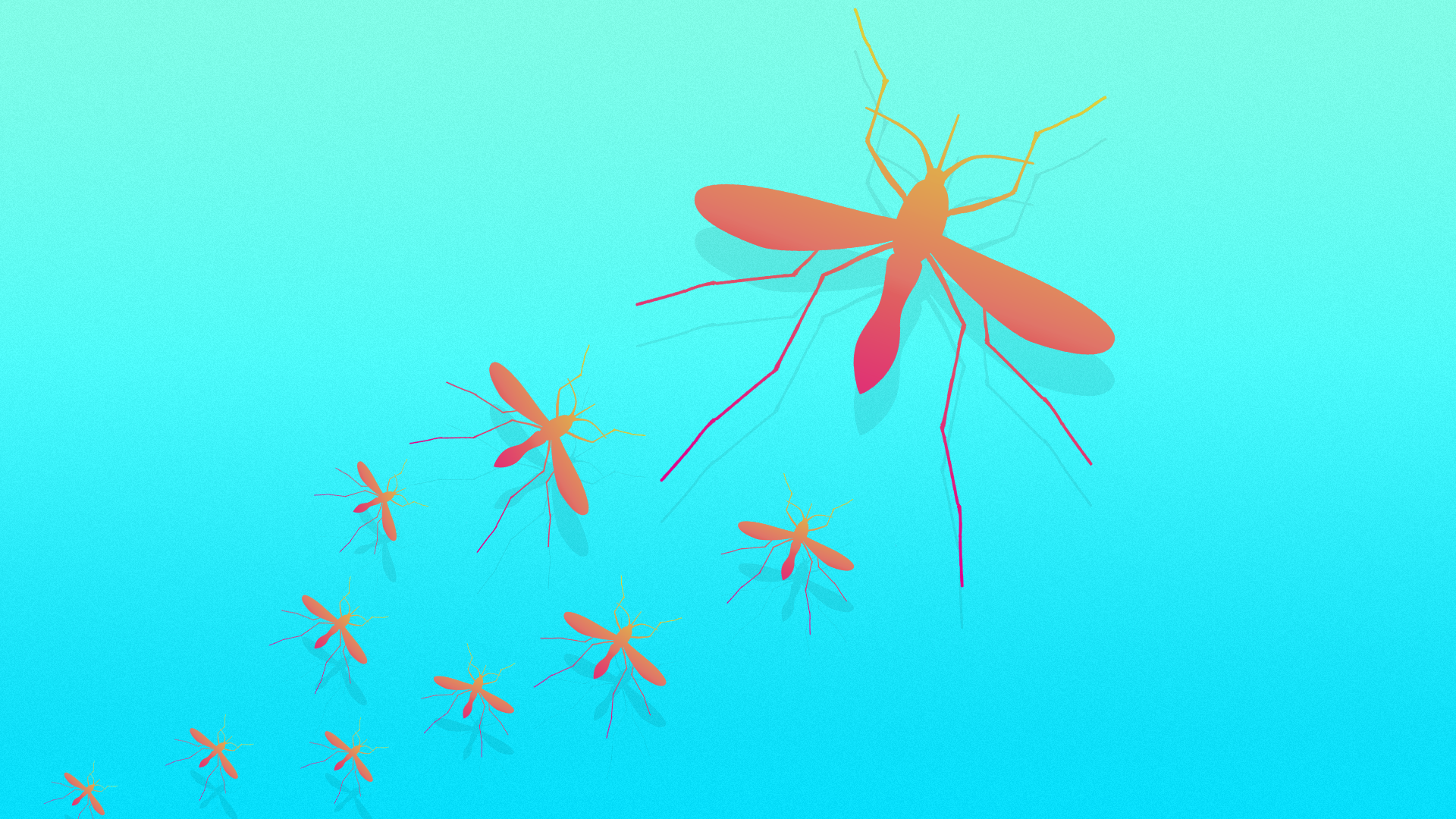#mosquitoes
“It can actually get too hot and dry for mosquitoes”–Paul Ebeling
The Key here, is humidity. If it does get too hot and too dry, mosquitoes will not be as active and feeding as they usually are. But once the temperature drops a bit and gets within the tolerable range for mosquitoes, they are more hungry and therefore biting more.
If you’ve ever visited AccuWeather.com, you noticed that they have a “mosquito activity report” that tells you how active the mosquitoes are that day and will be on days upcoming.
The Big Q: How do they know these things?
The Big A: As it turns out, the weather has a lot more to do with mosquito activity than people give it credit for.
Any time there is rain, there is increased mosquito breeding. Mosquitoes need stagnant water to lay their eggs in, therefore the more puddles there are on the ground, the more of a “playground” for mosquito moms laying eggs, and for those eggs to move through their life cycle to larva, then pupa, then adult. From egg to adult, this can take as little as four days to as long as a month, but generally it takes a little more than a week.
Keep in mind, though, that mosquitoes need stagnant water in order for this to happen. But it only takes a bottle cap full of water in order for a female mosquito’s raft of nearly 300 eggs to float in, so even if rain puddles dry up on the ground, stagnant water elsewhere make for prime mosquito-breeding areas. Tires seem to be a favorite, as they collect water on the inside and are a protected area for the babies to hatch and grow.
Mosquitoes are cold-blooded creatures, therefore they can’t regulate their body heat and their temperature is essentially the same as their environment. Temperature and mosquito activity goes hand in hand with the insects flourishing in moist, relatively warm environments, functioning best at 80°F. Once the temperature lowers to about 60°F they become lethargic and anything below 50°F they find it hard to function at all. Different species are active at different times, but in general, most mosquitoes are extra active at dusk and dawn. Warm evening temperatures allow mosquitoes to thrive, since prolonged sun exposure can actually dehydrate them. But depending on the temperature, some species will continue biting throughout the night, which is why you may have woken up with itchy bites in the morning while camping. If they are sheltered from the wind and in relatively cloudy areas, mosquitoes will continue to bite throughout the day too. They generally stop flying around midnight, in cooler temperatures or when it is raining heavily.
But it can actually get too hot and dry for mosquitoes.
The Key here, is humidity. If it does get too hot and too dry, mosquitoes will not be as active and feeding as they usually are. But once the temperature drops a bit and gets within the tolerable range for mosquitoes, they’re more hungry and therefore biting more. Those that are infected with a disease, such as West Nile virus, will be feeding more frequently, which will increase the chances of an outbreak.
Believe it or not, some species of mosquitoes hibernate. Not all species, but many of them go dormant in the wintertime, finding hiding spots to wait in for warmer weathers. When a female mosquito lays her eggs in the water in the fall, they can lie dormant and eventually freeze. But once the weather warms up a little bit, they can hatch and the life cycle will start all over again, which is why “mosquito season” is generally considered as between spring and fall. Tropical places and where it’s hot and humid year-round are unfortunate enough to never have a “season” for mosquitoes — it’s all the time!
But in the simplest of terms, the recipe for mosquito activity is heat + rainfall = humidity, and this, combined with stagnant water means the perfect soupy combination for mosquito madness.
Here is an efficient way to avoid them, as follows: Penta5USA has Effective Eco-Friendly products formulated to harness the power of Mother Nature that are DEET and PARABEN-FREE. They are Safe for your pets, Safe for your family, Safe for the Planet. Click here
Have a happy weekend, Keep the Faith!









